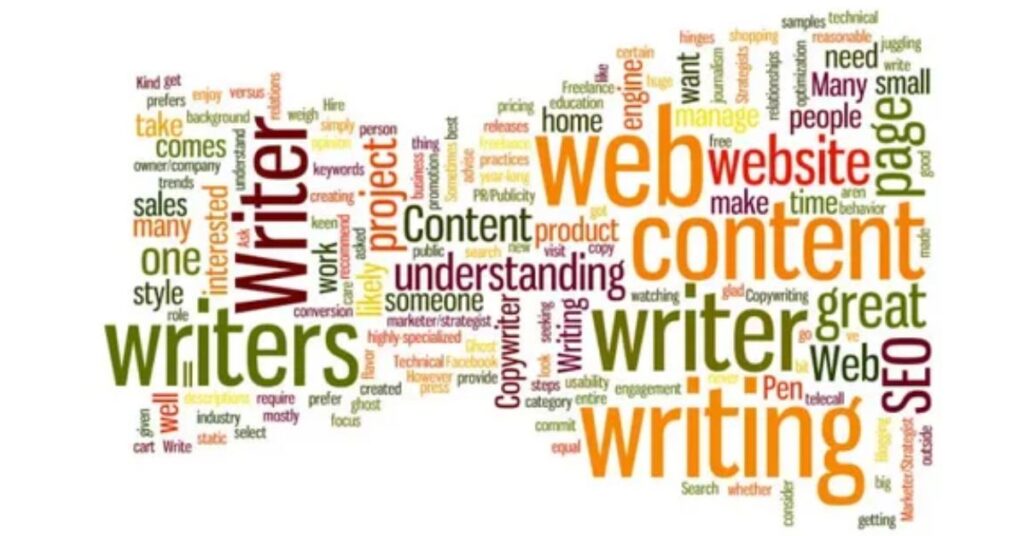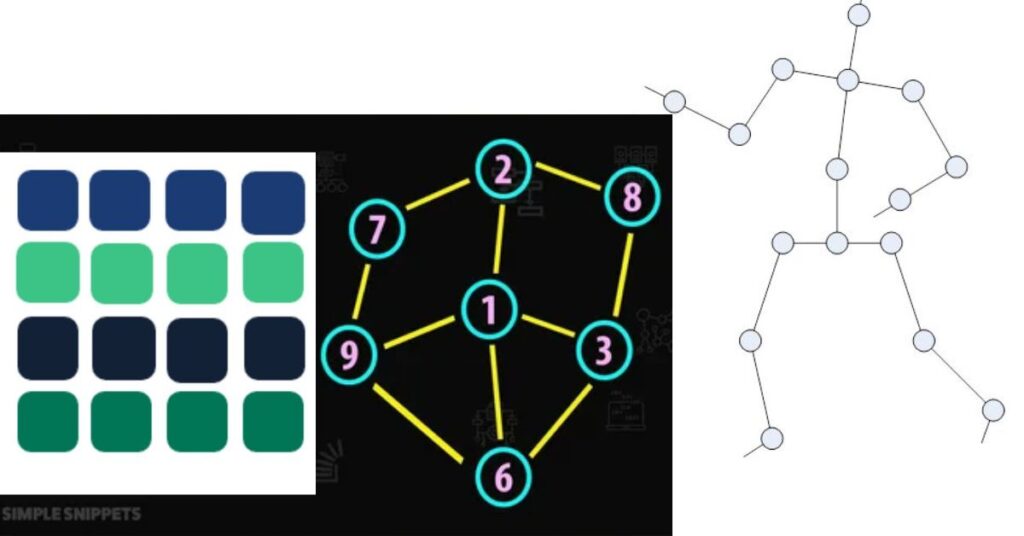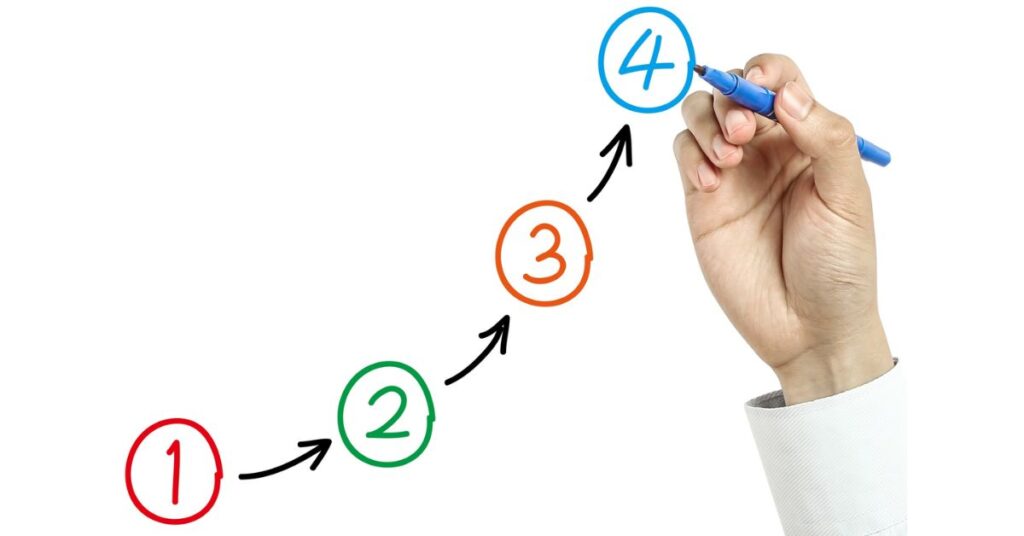You see different types of writing whenever you click on any website. This is a simple example of content. It has different intent like; informational, commercial, navigational, and transactional. The owners of a website couldn’t prepare and manage the contents themselves. They must hire a “Content Writer” to update their websites gradually.
Imagine you are a content writer and some website owners approaching you to write unique content, it is because you have expertise in this field. But think again how can you learn this specific art? Yes, it is possible with the help of Meta Achiever, a brand-name of the institution where you can learn and improve yourself for the world of the Internet.
Why do you not learn right now? This opportunity is in your hands. Are you ready to improve yourself? Remember, this article can change your life. All methods and tools will be learned here. Prepare yourself and read the whole article. If you become inspired, you may manage your time for a physical visit to the institution.
Types of Content Writing

Content writing for a website involves various styles tailored to different purposes. Blog writing is popular and focuses on educating or entertaining readers while building trust. SEO content writing helps improve a website’s visibility on search engines by using relevant keywords. On the other hand, Copywriting is persuasive and aims to encourage readers to take action, like buying a product or signing up for a service.
Other types include technical writing, which explains complex topics clearly for a specific audience, such as software manuals or user guides. Social media content writing is short and catchy, designed to engage audiences quickly. There’s also product description writing, which highlights the features and benefits of items in online stores. Each type requires a unique tone and structure to meet its goals effectively.
Read this article: Top 10 ways of online earning
What is the Structure of an Article?

A well-structured article is key to successful content writing. Using headings and subheadings helps organize the article and makes it easy to read. Bulleted lists or numbered points can break down complex information into simple steps. Short sentences and simple words make the content more engaging. A clear structure ensures the article flows smoothly and keeps readers hooked from start to finish. The distribution of an article is given below.
Main Title
It starts with a catchy headline that grabs attention. Apply the H-1 option for the main heading.
Introduction
It gives a quick overview of the topic and sparks interest. It consists of three paragraphs. Every paragraph remains from 3 to 5 lines. In the 1st paragraph, write a clear definition. In the 2nd paragraph, create the hook to grab the readers. In the 3rd paragraph, use catchy words, so that a reader is compelled to read the article to the end.
Body
The main body is divided into subtitles and every subtitle consists of two sections or paragraphs. Each subtitle focuses on keywords. Bullets and tables for explanation may be used if necessary. Apply the H-2 option for every subtitle and the H-3 option for further subtitles.
Conclusion
Finally, a strong conclusion ties everything together and leaves the reader with a takeaway. It consists of two paragraphs and each paragraph remains from 3 to 5 lines
Frequently Asked Questions
This is the last part of the article. The strategy must be the relevant short question and short answer. Each answer should remain from one to two lines.
Meta Description
This is the shortest reflection of the original title that explains the title. It is floating under the title when it appears in the Google search engine. This does not exceed 150 characters.
How Many Tools Are Available for Content Writing?

There are many tools available to make content writing easier and more effective. Grammar checkers like Grammarly help catch mistakes and improve writing style. Tools like Google Docs or Microsoft Word provide user-friendly writing and formatting platforms. For SEO, tools like SEMrush and Ahrefs help find keywords and analyze the competition.
Other tools focus on specific tasks. Hemingway Editor improves readability by suggesting simpler alternatives. Canva helps create visuals for content, making it more engaging. Plagiarism checkers like Copyscape ensure the content is original. With so many tools, content writing has become more efficient and professional. Some tools are commonly used as follows:
- https://chatgpt.com/: A popular AI tool to create an outline, title, subtitle, and everything you want to write.
- https://www.freepik.com/: To pick a relevant image for the title and subtitles.
- https://yandex.com/: To select the most relevant image.
- https://ideogram.ai/t/explore: To generate an AI image.
- https://www.canva.com/design/: To edit the image and set the size, likely 1200×628 which should be up to 100 kb. Usually, select the custom size. A minimum of 3 to 4 images are enough for a normal article. Insert the image after the H-1 and H-2 headings.
- https://slugify.online/: To rearrange the title for each image. By using this tool the spaces between titles are replaced by hyphens.
- https://markdowntohtml.com/: To remove the hidden codes and make a sequence. Copy the text from ChatGPT and paste it here, then copy from here and paste it in the article.
- https://www.duplichecker.com/ To check a plagiarism
- https://app.wordtune.com/: To remove the plagiarism — Up to 15% AI and plagiarism is acceptable.
- https://www.zerogpt.com/: To check AI detection.
- https://app.stealthwriter.ai/humanizer: To humanize the detected AI content.
- https://undetectable.ai/: This is another tool for checking plagiarism.
What is the Right Way to Write Content?

Writing content in sequence ensures clarity and flow. Here’s a step-by-step method:
- Understand the Purpose: Know why you are writing the content. Is it to inform, persuade, or entertain?
- Identify the Audience: Decide who will read your content. Tailor your tone and language to their needs.
- Plan the Structure: Outline the content with headings and subheadings. Start with an introduction, add a detailed body, and end with a conclusion and FAQs.
- Research the Topic: Gather accurate information and relevant examples. Ensure your facts are correct and up-to-date.
- Write the First Draft: Focus on putting your ideas into words without worrying about perfection. Cover all points in sequence.
- Edit and Proofread: Check for grammar, spelling, and flow. Refine sentences to make them clear and engaging.
By following these steps, your content writing will be organized and effective.
Step-by-Step Writing
Open your laptop and go to https://docs.google.com/ in the Google search engine. Select blank document. Write the main title of the article. Under the title write three paragraphs of the introduction focusing on the keyword and considering the main title. You may get help from https://chatgpt.com/ in this regard. By using ChatGPT, write the correct prompt with quoting keywords, title, and subtitles. Create some subtitles for the body of the article.
You may use bullets and tables in the 2nd paragraph of subtitles. Each subtitle consists of two paragraphs and every paragraph covers 3 to 5 lines. Copy the text from ChatGPT and paste in https://markdowntohtml.com/ for removing unnecessary codings. Then copy the text and paste it into your docus. Set the font H-1 for the main title and H-2 for subtitles, and further subheadings set the H-3 font.
Select the relevant image from https://yandex.com/. Write the conclusion of two paragraphs and each paragraph consists of 3 to 5 lines. Create FAQs with short answers/questions. You may get help from the Google search engine or ChatGPT in this regard. At the end, write a meta description of 150 characters.
How Can You Make Free from Plagiarism and AI?

To make your “Content Writing” free from plagiarism, start by creating original ideas. Avoid copying content directly from other websites. If you copy from other’s work for inspiration, rewrite it in your own words or use the relevant tool. Always check plagiarism with tools like https://www.duplichecker.com/ and use https://app.wordtune.com/ to make it plagiarism-free.
To remove the detection of AI, use the tool https://www.zerogpt.com/ and for humanization use the tool https://stealthwriter.ai/. Add real-life examples, emotions, or unique insights to your content. Avoid overusing repetitive phrases or predictable structures. Proofread your work to ensure it feels natural and authentic. These steps help make your article original, engaging, and credible.
Conclusion
Today, Writing Content for a website has become a trendy skill and a great source of online earnings. It is important to choose the best and unique topic before writing the content. Use attractive words according to the reader’s psychology. Using the right tools can give your content longevity.
Good work requires good practice, so practice Writing Content well. Learn to use relevant tools well. Think about setting up the article structure. Create natural beauty in your writing and always stay away from plagiarism. Choose appropriate images and give good examples. The more informative and attractive your content is, the more popular it will be with readers.
FAQs
What is content writing for a website?
Content writing for a website involves creating engaging, informative, and well-structured text to attract and inform visitors.
Why is a structured article important in content writing?
A structured article ensures clarity, readability, and flow, helping readers stay engaged and understand the content easily.
How can I make my website content more engaging?
Use simple language, short sentences, and a conversational tone. Add examples and visuals to keep the reader interested.
What tools can help me with content writing?
Tools like Grammarly, Hemingway Editor, SEMrush, and Canva can improve grammar, readability, SEO, and visual appeal.
How do I write content in a sequence?
Plan the structure, research the topic, and follow a step-by-step method: introduction, body, and conclusion.
How do I ensure my content is original?
Use your ideas, rewrite content in your own words, and check for plagiarism using tools like Copyscape or Turnitin.
What makes content writing effective?
Effective content writing is clear, engaging, tailored to the audience, and free from errors or plagiarism.
How do I avoid sounding like AI in my writing?
Write with a personal tone, add real-life examples, and avoid repetitive or overly formal language.
Can content writing improve website traffic?
Yes, high-quality, SEO-friendly content can improve search engine rankings and attract more visitors to your site.
How do I get better at content writing?
Practice regularly, read widely, and use tools to refine your grammar, style, and creativity.







